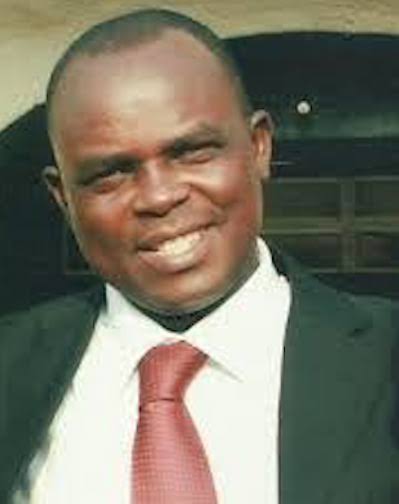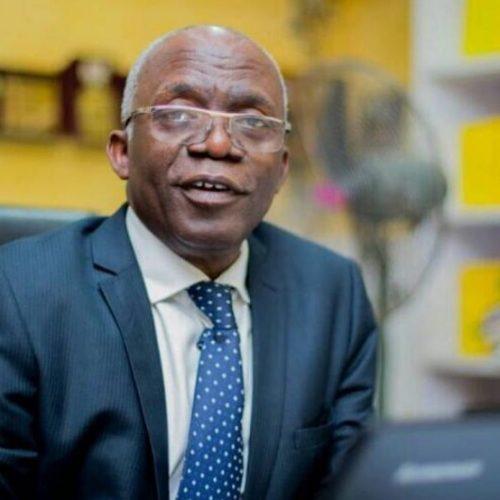By Bolanle BOLAWOLE
turnpot@gmail.com 0705 263 1058
Those who say life is not a straight line may be right! It is topsy turvy, full of curves, surprises and happenings that can hardly be explained satisfactorily. Niger State-born Justice Musa Datijjo Muhammed became more popular; nay, controversial, on the day he was retiring from the Supreme Court Bench than the 45 awesome years he had spent sitting on it.
What will leave an imprint on the minds of the present and the future will not be any of the judgments His Lordship delivered beginning from 1978 when he was appointed as Magistrate Grade 11 up to his elevation to the highest court of the land, the Supreme Court, on 10 July, 2012, but the valedictory speech he made on his last day on the Bench on Friday, 27 October, 2023!
That speech is what will define him, for better or for worse. In his valedictory speech, Dantijjo pulled no punches as he took the judiciary to the cleaners, not sparing even the very head of that arm of government, his boss and the Chief Justice of the Federation. In fact, it would appear that the CJN was the direct object of Dantijjo’s vitriolic attack. What can we call this: Staying inside and pissing inside or defecating on the seat while vacating it?
Now, we talk of motives and timing. In my African Philosophy class in the university, I was taught a very spectacular African concept of cause and effect that distinguished it from the Hellenic or Euro-centric concept. What, when, where and how are questions the Western world asks when an event occurs; the African goes a step forward to ask why the event happened, why at that material time, why at that particular place, and why to that particular person?
Motives help us to have a better understanding of cause and effect. Timing also throws light on the inner recesses of actors that the happenings themselves, taken at their face value, may not yield. For instance, in Dantijjo’s tongue-lashing of the CJN, the judiciary as a whole, and the apex court’s handling of the presidential election petitions filed by the PDP presidential candidate, Alhaji Atiku Abubakar, and his Labour Party counterpart, Mr. Peter Obi, we must seek out the motives and timing behind the attack.
Dantijjo accused the CJN of wielding immense powers that can make him – in fact, he has become – authoritarian and dictatorial, capable of – in fact, has – taken decisions without consulting his peers on the Bench. Says Lord Acton: Power corrupts, absolute power corrupts absolutely. But the question to ask is this: Is this a new omnibus power given to the current CJN or has those powers always been available to the CJNs before him?

If those powers have always been available – which I think is the case – why is Dantijjo crying out now and not before now? Dantijjo spent a whopping 11 years on the Supreme Court Bench, he must have worked with about four of five CJNs all wielding the same powers as the current CJN. There-in, then, comes motives. Are there personal issues involved? Was there a competition for this post that went one way to the displeasure of another? Were there personality clashes? Otherwise, why now? Why this timing?
I do not want to ask whether there are internal machineries available at the apex court to ventilate grievances and iron out issues rather than wash dirty lines in the public. Dantijjo’s valedictory speech, celebrated wildly and widely in the media, did more harm than good to the judiciary where he spent almost all of his life and whose leading light he is supposed to be. If a justice of the Supreme Court could speak so lowly of the judiciary, why should ordinary citizens repose any confidence in it?
Was Dantijjo building – or was he destroying – the judiciary? Whatever lapses there are in the judiciary, he must have been a part of it. He cannot wash himself clean with his valedictory speech – except we have evidence that he had cried himself hoarse in the past, without the authorities giving heed. In which case, it would have been honourable for him to have resigned in protest, and not spend his time out and retire with full benefits before speaking out!
I was still meditating on this and Dantijjo’s allegation that justices of the Supreme Court from two of the six geo-political zones were not on the panel that heard Atiku and Obi’s petitions, thereby rendering their decision tainted, in the view of Dantijjo, and thinking whether or not I should join issues with his Lordship when I received the lecture delivered by another eminent jurist, retired Kogi State high court judge, Justice Alaba Omolaye Ajileye, which, in my opinion, addressed the issue raised by His Lordship Dantijjo, on the composition of the Supreme Court panel of jurists that made the final pronouncements on Atiku and Obi’s petitions.
His Lordship Omolaye Ajileye, Nigeria’s foremost authority on the law of electronic evidence, spoke in a lecture delivered at the 9th annual week of the Badagry branch of the Nigerian Bar Association held last Thursday. It was titled “Leveraging emerging legal challenges to the rule of law in the prevailing socio-economic realities in Nigeria” He said:
“Distinguished gentlemen of the Bar, whether we accept it or not, the truth remains that the public is watching what is going on in our courts and regularly and deeply questioning the rationale behind certain decisions, and rightly so. If there was ever a period where we expected the public to blindly trust the Judiciary, it is long gone. The trust necessary for the public to accept judicial decisions and court orders is fundamental to the rule of law.
“The Judiciary must continually ask itself, how and why did it allow things to degenerate to this level? This is because the Nigerian judiciary had undoubtedly enjoyed high levels of trust in the past. The judiciary must take this decline in public trust seriously. It cannot afford to be complacent. It is dangerous for it to assume that trust is ever-present. It must address this trust deficit.
“The public should and must be able to trust in the individual judges and the judiciary as an institution which wields immense power on its behalf. As Alexander Hamilton famously said, unlike the executive and legislature, the judiciary “
‘has no influence over either sword or the purse’ and ‘may truly be said to have neither force nor will, but merely judgment’.
“Armed with only the power of judgment, the judiciary requires the legitimacy gained from public trust to function effectively to make the rule of law blossom. The general acceptance of judicial decisions, by citizens and by governments, is essential for peace, welfare, good government and the rule of law. The corollary is also true. To distrust the judiciary is a ready recipe for anarchy. This is because citizens who trust the judiciary are more likely to engage with the legal system to address their legal issues and to co-operate with its processes…
“Still on the issue of trust, His Lordship, Hon. Justice Dattijo Muhammad, JSC (Rtd), recently made a statement at his valedictory that raises a jurisprudential question on securing public trust and justice. I quote Him: ‘To ensure justice and transparency in presidential appeals from the lower court, all geo-political zones are required to participate in the hearing. It is, therefore, dangerous for democracy and equity for two entire regions to be left out in the decisions that will affect the generality of Nigerians’.
” The grouse of His Lordship here is that both the North Central and South East geo-political zones were not represented in the panel of Justices of the Supreme Court that decided appeals that arose from the Presidential Election Tribunal to the apex court recently. This he describes as ‘dangerous for democracy and equity’
“While the focus of His Lordship was on the absence of Justices from the North Central and South East geo-political zones in the panel, it was easy for social media commentators to quickly draw attention to the fact that the South West geo-political zone that parades the Chief Justice of Nigeria and two other eminent Justices of the Supreme Court was also not represented in the panel. According to the commentators, it was also in order to ensure ‘transparency and equity’ .
“The issue is neither here nor there. My humble position here is, it is better that the Judiciary, including the Supreme Court, be perceived as a homogeneous entity that serves the interest of all. It is dangerous to the society to perceive justice from the prisms of tribes, religions or geo-political divisions.
“Justice ought to remain an integral whole that does not admit of partition along tribal or geo-political bifurcation. It is also more dangerous if the impartiality of the Supreme Court is to wait for people to see the extent to which they have been represented by Justices who come from their geo-political zones.
“Secondly, with due respect, to perceive justice from geo-political lines is to trivialize justice. Justice is far more important than that. If we accept the intrinsic worth of every human being, then, justice becomes the minimum debt we owe to him, for if we deny him justice, we have declared him worthless.
“The dispenser of justice should, therefore, be a person that is even-handed, blind to all social distinctions and disparities in wealth, religion, tribe, status and no respecter of persons, just as justice itself should be. If a nation cannot look at their judges and see men and women who are upright enough to uphold the principle of the rule of law and do justice to all manner of people without fear or favour, affection or ill-will, then, I will simply say that nation has lost it!”
On point of law, there is nothing to add to what His Lordship, Alaba Omolaye Ajileye, currently with the Baze University, Abuja, has said, but if desperate politicians are stopping at nothing to ridicule judges and ruin the judiciary; if litigants’ lawyers can be said to be doing their job when dragging judges and justices unjustifiably in the mud; what do we make of any eminent jurist who lines up behind those ones to disparage his own seat of honour?
Must you, for no justifiable reason, lend a helping hand to those intent on destroying the house you spent close to half a century labouring hard to build? More so at a time and on an issue that many were of the firm opinion that the judiciary had discharged itself creditably and was on the way to regaining the lost (?) confidence and trust of the citizenry? This Nigeria don tire me o!
- Former Editor of PUNCH newspapers, Chairman of its Editorial Board and Deputy Editor-in-chief, BOLAWOLE was also the Managing Director/ Editor-in-chief of THE WESTERNER newsmagazine. He writes the ON THE LORD’S DAY column in the Sunday Tribune and TREASURES column in New Telegraph newspaper on Wednesdays. He is also a public affairs analyst on radio and television.



















